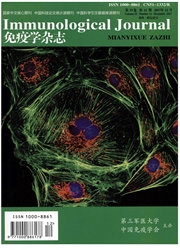

 中文摘要:
中文摘要:
目的以传统中药蒲公英的主要成分蒲公英甾醇为研究对象,探讨蒲公英甾醇的体外抗炎作用及其作用机制。方法培养小鼠腹腔巨噬细胞RAW264.7进行试验分组,检测RAW264.7细胞COX-2和i NOS m RNA和蛋白的表达,并检测ERK 1/2、JNK和p38 MAPK及其磷酸化水平的表达。结果蒲公英甾醇分别不同程度的抑制了i NOS和COX-2 m RNA和蛋白的表达,且呈一定的剂量依赖关系;显著抑制了LPS诱导的RAW 264.7细胞p38和ERK 1/2激酶的磷酸化,并呈剂量依赖关系;但对JNK激酶磷酸化的抑制作用不显著。结论蒲公英甾醇通过调节p38和ERK 1/2 MAPKs的磷酸化水平抑制i NOS和COX-2的表达,从而发挥体外抗炎作用。
 英文摘要:
英文摘要:
This study designed to investigate the anti-inflammatory effects of taraxasterol isolated from traditional Chinese mecicine Herba Taraxaci. RAW264.7 cells were cultured and divided into different experiment groups. The expressions of COX-2 and i NOS m RNA and protein, the levels of ERK 1/2, p-ERK1/2, JNK, p-JNK,p38 and p-p38 were detected. Data showed that taraxasterol inhibited the expressions of i NOS and COX-2 m RNA and protein in a dose-dependent manner, and taraxasterol significantly inhibited the phosphorylations of p38,ERK1/2 in RAW264.7 cells induced by LPS in a dose-dependent manner, however, had no obvious effect on JNK phosphorylation. Taken together, taraxasterol inhibits i NOS and COX-2 expressions by regulating p38 and ERK 1/2MAPKs phosphorylations, thus plays an anti-inflammatory role in vitro.
 同期刊论文项目
同期刊论文项目
 同项目期刊论文
同项目期刊论文
 Protective effect of taraxasterol against LPS-induced endotoxic shock by modulating inflammatory res
Protective effect of taraxasterol against LPS-induced endotoxic shock by modulating inflammatory res 期刊信息
期刊信息
